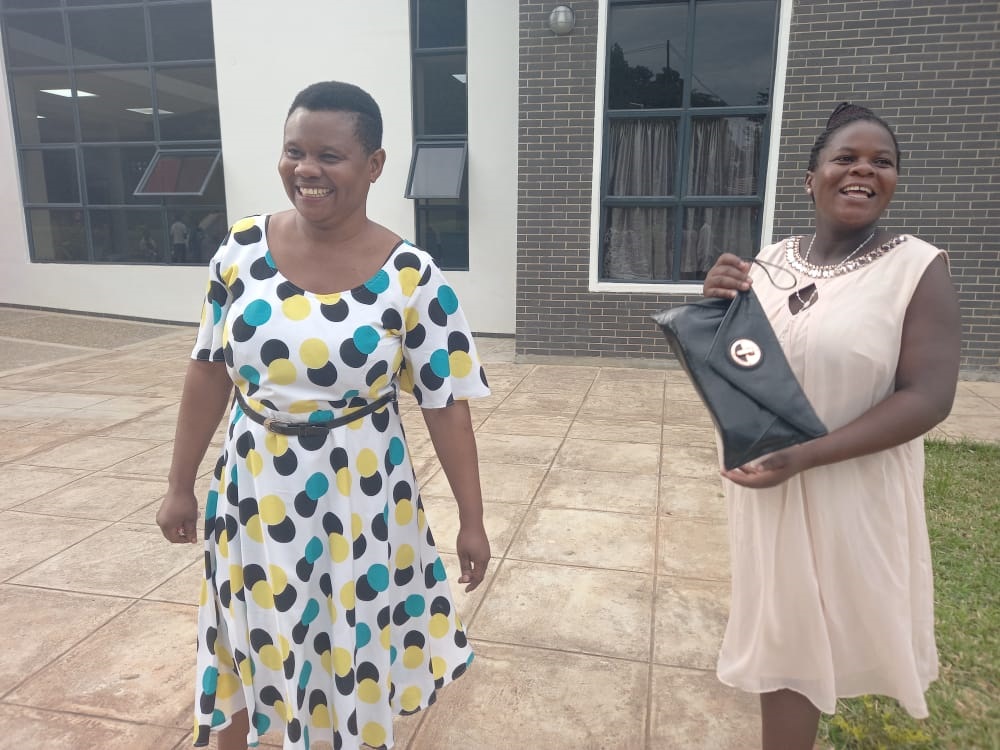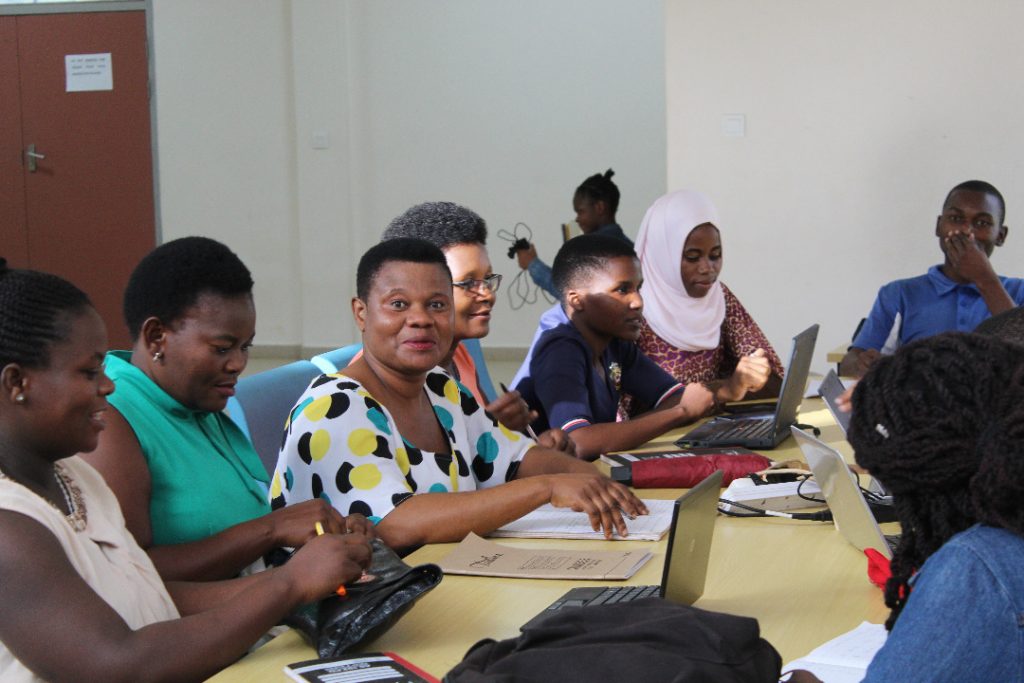Reliving thirst and hunger for education
The importance of education cannot be misjudged. That is why every person deserves an opportunity to get quality education. However, by and large, education is forced on youths as the key to their brighter future. But as News Analyst LUCKY MKANDAWIRE writes, a learners’ age is not a barrier to education.
Sustainable Development Goal (SDG) number four seeks to promote quality education. It reads; “Ensure inclusive and equitable quality education and promote lifelong learning opportunities for all”.

Thus, the SDG expresses that irrespective of circumstances, every person wanting to learn, advance and broaden knowledge or enroll and pursue an education should do so with no undue restrictions.
Prisca Manyetera Chikopa is a Bachelor of Science in Food and Nutrition final-year student at the University of Malawi (Unima), formerly Chancellor College (Chanco). She refused to let her age limit her ambitions to attain higher education.
The mother of four is a student par excellence. Her academic brilliance in science subjects has not only been a source of inspiration to her classmates, but also a point of reference elsewhere.
During this year’s commemoration of International Women’s Day in Blantyre, Chikopa was among 12 best female students and fresh graduates from the country’s six public universities honoured by Ritz Attorneys At Law for their academic excellence.
Chikopa says much as studying science is deemed by most female students as a challenging task, she has excelled because of determination and hard work.
“I enjoy all science subjects unlike humanities,” she says. “For instance, my first combination in teh first year was physics, chemistry, biology and mathematics with language for communication.”

But unlike the other 62 students in her BSC in Food and Nutrition class, Chikopa has a bitter sweet story to tell.
Just like the late Kenyan Kimani Maruge, the current record holder for the oldest primary school learner in the Guinness Book of Records who went back to school aged 84, Chikopa returned to school after 20 years in marriage.
She explains that her life-changing decision followed immense hardships she was experiencing in her marriage.
The 45-year-old student dropped out of school in 1994 while in Form Three at Likuni Girls Secondary School in Lilongwe, after falling pregnant. She was only 17 years old then.
She was married off because under the one-party regime of the country’s founding president, the late Dr Hastings Kamuzu Banda, a girl was not allowed to proceed with education once pregnant.
That code has perhaps silently lived on as recent statistics show that about 42 percent of girls in the country are married while still children, with some 29 percent aged 15 to 19 have already begun child-bearing.
Throughout Chikopa’s 20 years of marriage, life was hard. She realised her mistake as the grim reality of suffering caught up with her, with no hope of ever going back to school.
“I was a menial firewood vendor at Kaphiri Market along the M1 in Lilongwe. The hand-to-mouth kind of life became really tough and unbearable. But one day our pastor from Assemblies of God Church delivered a heartrending sermon on education and age.
“I returned home and intensely reflected on his homily. I was convinced there is no age limit to learning, but what matters is the desire to learn. Age becomes just a number. So, I did not hesitate but re-enroll in Form Three,” she explains.
At that time, her second-born child was also in Form Three while the first-born had already written the Malawi School Certificate of Education (MSCE) examinations.
Chikopa recounts that it was an uphill task to successfully conduct her business—play the role of a mother and then walk the long distance to Chipasula Open Secondary School for classes from 2pm to 5pm every day.
But she stuck to her aspiration and belief that there should be no limitation on hope. Finally, in 2015 she wrote her MSCE exams and got 26 points, passing all subjects with credit.
Knowing that success cannot be achieved without the will to win, Chikopa was not satisfied with her 26 points, so she thought of re-writing her MSCE in 2016 but now focusing on science subjects. This time she scored 18 points.
Meanwhile, using her 26-points MSCE certificate she applied for a place at the then Natural Resources College (NRC), now Lilongwe University of Agriculture and Natural Resources (Luanar) after merging with Bunda College of Agriculture, where she was admitted.
But barely two semesters of studying at NRC Chikopa withdrew because she could not afford fees due to her unstable economic background.
“But another door opened for me. I was selected to study BSC in Food and Nutrition at Chancellor College. Although it has been a tough journey I thank God for taking me this far,” states Chikopa, who hails from Nakondwa in Traditional Authority (T/A) Kalonga in Salima.
At Unima, Chikopa was also nearly withdrawn after her first year due to fees after she was told she did not qualify for bursary.
“I moved from one office to the other with the help of my close friend Lynn Moyenda Chamdula. We were ridiculed but never relented until one kind woman facilitated negotiations and the university reconsidered my loan.
“But that was not all, because after I decided to return to school none of my relations supported my desire until today. None has helped me with any necessity from upkeep to fees.
“So, with my thirst and hunger for education still alive, I was forced to take along my five-year-old child to school as nobody was prepared to take care of him,” she laments.
She urges young women, who endure the fate of early marriages after failing to pursue their academic dreams due to pregnancies and early marriages, to emulate her example.
“Despite my academic mission being halted for two decades, all was not lost. Try one more time and pursue your dreams,” advises Chikopa, who is the oldest in her class.
Chikopa says she decided to study food and nutrition because she was raised in the village where issues of malnutrition were rampant.
“This led to my passion to study nutrition to help in averting the problem through knowledge and skills [interventions] acquired. Additionally, I wanted to contribute to the country’s development in areas of bringing knowledge and skills in nutritious food uptake,” she says.
Her companion, Moyenda Chamdula, says Chikopa has not only been an excellent academic performer in their class but also a perfect social influencer.
“She has been the source of inspiration and motivation not only to her classmates, but to other students who initially used to mock her as agogo [granny]. She has remained focused and undeterred regardless of the suffering she has been undergoing.
“Her humility and hard work is unique, irrespective of the age gap with the rest of the students. Personally, I have been impressed by her resilience to life challenges and enthusiasm to pursue her dreams,” she says.
During the International Women’s Day commemoration, Ritz Attorneys At Law rewarded Chikopa and other 11 students and graduates with laptops and cash prizes worth over K10 million for their achievements.
Ritz Attorneys-at-Law head of marketing and business development Sean Longwe said Chikopa was identified through his office’s corporate social responsibility under the science, technology, engineering and mathematics (Stem) programs in the public universities.
“As Ritz Attorneys At Law we thought it practical to celebrate and motivate female students under Stem Higher programs. There is a lot being talked about gender equality without the corresponding walk to it. Prisca is our practical example of walking the talk.
“In life each of us faces different challenges but as long as we have the gift of life that should speak to us that there is a chance to make things better,” said Longwe.
For Chikopa, despite missing several years of learning, she is now about to graduate and has new hope for her life and family while helping attaining targets for the SDG Four on ensuring equal access for all women and men to affordable and quality technical, vocational and tertiary education, including university.






One Comment